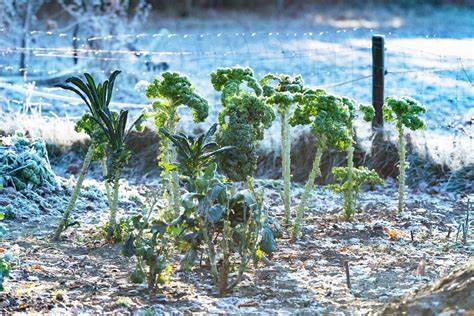Tips for a Healthy Garden As winter approaches, gardeners must proactively protect their plants from freezing temps and rough weather conditions. Winter can be particularly challenging for plants, as frost and cold winds can cause damage, leading to stunted growth or even death. In this article, we'll explore practical strategies to safeguard your garden and ensure the well-being of your beloved plants during the winter months.
Choose Cold-Resistant Plants:
Before winter arrives, selecting well-suited plants for colder climates is essential. You can consult with local nurseries or gardening experts to identify cold-resistant plant varieties that thrive in your region. Native plants are often more adapted to local weather conditions and may be better equipped to withstand winter freezing. Mulching: Applying a layer of mulch around the base of your plants is an excellent way to protect them from winter cold. Mulch acts as an insulator, retaining soil moisture and regulating temperature. Choose organic mulch materials such as pine, leaves, or wood chips and spread a layer several inches thick around the botton of your plants. This will help prevent soil erosion, maintain moisture, and provide a buffer against temperature fluctuations. Wrap Vulnerable Plants: Consider wrapping them in burlap or frost cloth for more delicate or young plants. This protective layer helps shield plants from the harsh effects of freezing winds and frost. Secure the covering firmly, allowing for proper air circulation while providing an additional barrier against the cold.
Watering Strategies:
Proper watering is crucial for plant survival during winter. Please make sure that your plants are well-hydrated before the first frost. Moist soil retains heat more effectively than dry soil, offering better insulation for plant roots. However, too much water, as excess moisture can lead to root rot. Additionally, early morning water allows the soil to absorb moisture before temperatures drop at night. Install Windbreaks: Winter winds can be especially damaging to plants. Strategically placing windbreaks, such as fences, shrubs, or other structures, can help mitigate the impact of strong winds. These barriers act as shields, reducing wind speed and protecting plants from desiccation.
Use Anti-Transpirants:
Anti-transpirants are sprays that create a thin, protective film on the leaves of plants, reducing water loss through transpiration. Applying anti-transpirants before winter can help plants conserve moisture and prevent dehydration during freezing temperatures. Follow product instructions carefully, and use the spray when temperatures are above freezing. Protecting your plants from winter freezing requires careful planning and proactive measures. By selecting cold-resistant plants, using mulch, wrapping vulnerable plants, adopting proper watering strategies, installing windbreaks, and employing anti-transpirants, you can create a resilient garden that thrives even in the coldest months. With these strategies in place, you'll be well-equipped to ensure the health and vitality of your plants throughout the winter season.

